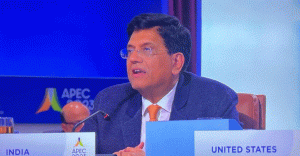
Is it possible to bounce back from the brink of bankruptcy to carve out a strong financial base for oneself? The answer to that question is yes, provided one has access to sound financial advice that can help one tide over losses and pick the right investments that will help build wealth over the long term. The second episode of Let’s Mint Money, presented in collaboration with Groww Mutual Fund, saw Editor (Personal Finance) at Mint, Neil Borate and Jash Kriplani, Senior Assistant Editor at Mint Money (Personal Finance) in conversation with Unny Radhakrishnan, Chief Executive Officer (CEO) at Digitas India and his financial advisor Suresh Sadagopan, the Founder of Ladder7 Wealth Planners Private Limited. Watch the full episode here, Radhakrishnan started his career in 1992-93 as a programmer, but he was seeking more from his job than just a pay cheque at the end of each month.
He wanted to work for an ‘ethical’ organization, which had a significant focus on social impact. The opportunity came in 1997, when he joined a company focussed on construction, housing, energy management, healthcare and education. “It was hugely focused on a very ethical way of doing business, despite being in construction – absolutely no bribes, no black money, stick to the rules kind of organization where salaries were very moderate.
The fundamental belief was that business that is deeply committed to human values can actually change the world. There was also a lot of focus on internal growth as an individual. I really got attracted to that, joined them and worked for about 7 years,” Radhakrishnan said.
Unny's Professional Journey In 2004, he joined a digital marketing company. Three months later, he moved with his wife from Chennai and Mumbai. He switched jobs in 2007 and joined a global digital media and marketing company and that’s when he could think of any kind of savings.
About 3-4 years later, a colleague introduced him to Sadagopan because now that he had the money, he wanted guidance on where to invest it. “When he came to us, he was actually earning a reasonably decent sum of money and had a fair amount of money to put aside. So, while we may not have had a huge corpus to start with, we were able to start putting together those pieces in place.
It was a fairly disciplined, regular investing which happened in their case, as they were very controlled with their expenses. Even their financial goals were very controlled and they chose not to have a child. These factors really helped to build a corpus,” said Sadagopan.
In terms of real estate, he bought his first home in Kerala – that is where he and his wife wanted to finally settle down. The second one was a One-BHK in Mumbai as they decided that they needed a home in Mumbai till they were working. When asked how far Radhakrishnan is from attaining financial freedom, Sadagopan said: “He can quit the job today if he likes.
In this case, it is a reasonably aggressive portfolio, partly because the markets have been doing well and considering the fact that it is roughly 68-70 per cent in equity and the rest divided between gold and some form of debt. It has become this way, because over a period of time, we have primarily been doing monthly SIP investments. So, over a period of time, the values of equities have gone up.
” They didn’t not reduce the equity allocation in this case because there were no compelling financial goals and there was some time to retire too. This kind of a portfolio can be considered as a long-term portfolio. Building a Portfolio “We have not built a portfolio overnight.
It has organically been built over a 13 to 14-year period. Over such a long time period, whatever we are investing in today will not show the same level of performance a decade later. In general, the longer you stay invested in the market, the better and more stable the returns are.
So, in his case, we can definitely say that it is a long-term portfolio that we have built for him with good returns to the tune of 15 per cent overall,” Sadagopan explained. Radhakrishnan concluded the session with some parting thoughts for young investors. “I think having a trusted financial advisor makes a huge difference in your life – I can vouch for that.
The other thing is that I think people think creating wealth is only about earn, earn, earn. It is also a function of how much you spend and how you manage your savings,” he said. Here is what Mr.
Varun Gupta, CEO of Groww Mutual fund, has to say about Mr. Radhakrishnan’s journey: "Mr Radhakrishnan’s transformation from near-bankruptcy to financial security is a powerful reminder of how smart financial decisions can reshape lives. Their disciplined approach to savings, debt repayment, and diversified investing has set them on the path to a secure retirement.
For those in similar positions, balancing growth with protection is essential to safeguarding both your future and your peace of mind." Disclaimer: Lets Mint Money is a Mint editorial IP, sponsored by Groww Mutual Fund.














